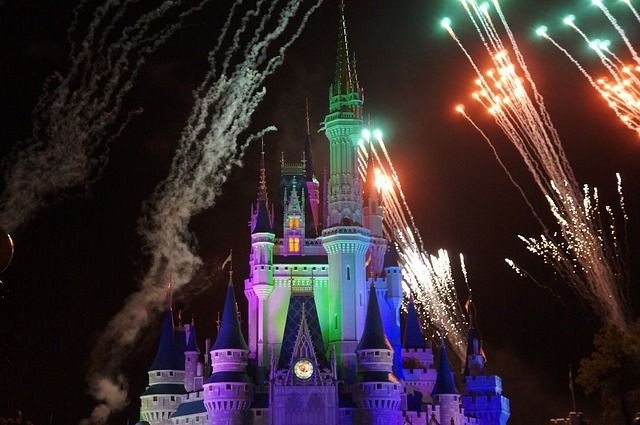Pretty Pretty Princess: Overexposure To Disney Culture May Affect Girls' Perceptions Of Body Image Throughout Life

A pretty pink princess may be your little girl's favorite toy, but a new study suggests that parents may want to add some variety to their daughters' playtime. According to the research, too much exposure to Disney Princess culture can seriously magnify female gender stereotypes in young girls, which may hold them back from experimenting in typical “male” fields such as math and science, and compromise their body esteem.
For the study, which is currently published online in the journal Child Development, researchers examined associations between exposure to Disney Princess media and gender-stereotypical behavior, body esteem, and prosocial behavior for preschool and kindergarten-age children. The team assessed how 198 preschoolers interacted with Disney Princess culture by asking the children’s parents and teachers how often they watched Disney princess films and played with Disney princess toys and by having the children sort and rank their favorite toys.
The results showed that 96 percent of the girls and 87 percent of the boys had viewed Disney Princess media, and 61 percent of the girls and four percent of the boys played with princess toys at least once a week. Interestingly, for both genders, interaction with princess toys and media was linked to more female gender-stereotyped behavior a year later. However, the effects of this stereotyped behavior differed greatly among the boys and girls.
Girls who interacted the most with Disney princesses showed worse self esteem about their bodies as time went on.
"Disney Princesses represent some of the first examples of exposure to the thin ideal," said lead researcher Sarah M. Coyne in a recent statement. "As women, we get it our whole lives, and it really does start at the Disney Princess level, at age three and four."
Poor body image is a serious problem among young girls and can be a major precursor for developing an eating disorder later in life. According to the National Eating Disorder Association, approximately 30 million Americans are struggling with an eating disorder. Although anorexia and bulimia may be the most widely recognized eating disorders, there are many different types of disordered eating conditions that can seriously compromise an individual’s health.
Interestingly, exposure to Disney media actually had the opposite effect on young boys’ body image, and the study revealed that engaging in Disney material may help to counteract the hyper-masculine superhero media that is often shown to young boys. The boys in the study who engaged with Disney princess media had better body self-esteem and were more helpful to others.
In addition to having a negative effect on the young girls' body image, the researchers also found that young girls who more closely identified with feminine gender stereotypes often feel as though they can’t do certain tasks and activities that they may inherently classify as being masculine.
"We know that girls who strongly adhere to female gender stereotypes feel like they can't do some things," Coyne said. "They're not as confident that they can do well in math and science. They don't like getting dirty, so they're less likely to try and experiment with things."
The results help to reveal how significant early childhood experiences can be on an individual's lifelong health, but the team emphasizes it’s not necessary to completely take Disney out of your little girl’s life. Just make sure she understand that being a princess is only one part of what makes her so special.
"I'd say, have moderation in all things," Coyne said. "Have your kids involved in all sorts of activities, and just have princesses be one of many, many things that they like to do and engage with."
Source: Coyne SM, Rasmussen EE,. Lunder JR, Nelson DA, Birkbeck V. Pretty as a Princess: Longitudinal Effects of Engagement With Disney Princesses on Gender Stereotypes, Body Esteem, and Prosocial Behavior in Children. Child Development. 2016



























